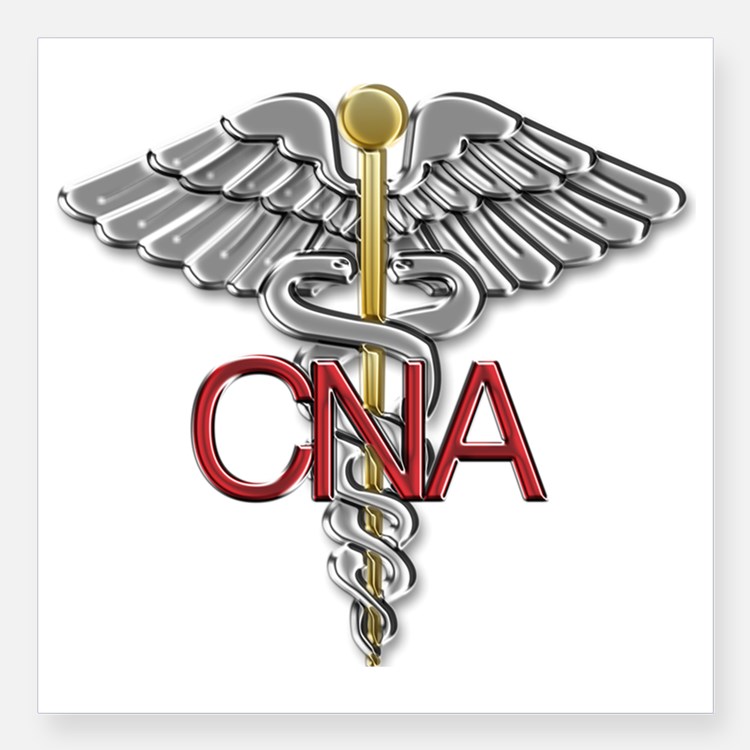
A CNA license is a permit from the State Nursing Board or the CNA Licensing Authority to become a member of a healthcare team, and to play the role of a Certified Nursing Assistant such as to provide nursing care to patients, residents, clients, and customers in different health care settings, provide patients with assistance such as eating, using the toilet, oral care, dressing when they are not in a position to.
Contents:
- What Is a CNA License?
- Requirements for CNA Licensing
- How to Get a CNA License?
- Verification of the CNA License
- How to Verify Your CNA?
- CNA License Renewal
- How to Renew a CNA License?
- CNA Number
- How to Get a CNA in Florida?
- CNA Online
What Is a CNA License?

A Certified Nursing Assistant requires minimal hours in the training program, which explains why the profession is popular and is in high demand.
CNAs are known as nurse aides and nurse assistants, and the following are some the tasks they are required to perform:
- They serve as assistants to Registered Nurses (RN) License Practising Nurses (LPN), other nursing and healthcare professionals.
- They provide basic, day-to-day patient care in nursing homes, assisted living centers, hospitals, and other health facilities.
- They are required to report crucial information to senior nurses.
Requirements for CNA Licensing

The requirements vary from one state to another, but only by a slight degree.
The requirements for obtaining a CNA license comprise of:
- The applicant should be at least between 16 to 18 years of age, in some states, a 16-year-old is eligible for the license, while in others you have to be 18 years of age to get the license. The flexible CNA training program enables students, who are finishing high school and are continuing their education at a community college or a 4-year university, to work part-time. Notably, although some states issue the CNA license to 16-year-old applicants, they may not be employed according to the employment requirements, thus leading to the suspension of your license.
- The applicant must have completed their high school education and be a diploma-holder or must have completed their GED. Exceptionally, the states that issue 16-year-old with licensure require them to have completed a minimum of eight years of grade school.
- The applicant must have a clean criminal record, which must be free of criminal convictions such as misdemeanors and felonies, mental health conditions, chemical dependency or medical conditions. Minor violations such as citations, tickets, traffic, juvenile offenses may not disqualify you from getting a CNA license including violations that happened 10 to 7 years ago prior to a clean criminal record. All this information is collected from the applicant’s fingerprint.
Some of the criminal convictions may not stop you from getting a CNA license, but it may not qualify you for a job, as some employers may not employ someone with a record regardless of what you did.
How to Get a CNA License?

After you are certain you have met the requirements expected of you in order to acquire a CNA license, you have to go through the following steps to get the license:
- Ensure that you meet the basic eligibility requirements for getting into an accredited training program and applying for a CNA license. This is to make sure that you don’t go so far into the steps without being aware of your eligibility.
- Complete an accredited training program — it is offered in different institutions such as community college, Red Cross, high school and vocational schools. The institutions you choose must be approved by the State’s Nursing Board. You should be aware that there is a time frame between when you finish the training program to when you get the license.
- Submit your CNA license application — it is 1 to 2 pages, whereby you are required to fill in the following kind of information:
- Name
- Phone number
- Address
- Criminal background
- Height
- Social security number
- Weight
- Eye color
- Driver’s license or state ID number
- Hair colour
- Prior actions taken against you by a health-related licensing, certification disciplinary authority.
- Information about the CNA training program, the institution you went to, when you completed the training program and if applicable the program ID number and a document showing that you completed the training program sent either directly by the school and from you should be sent to the State Nursing Board or the CNA Licensing Authority.
- Provide your fingerprints — this helps the licensing board to do a criminal background check on the applicant. They are submitted with the application, or in some states before the application is given in. They help in carrying out a thorough background check on the CNA license applicant, to point out a criminal record on the applicant’s record. Felonies like manslaughter, murder, sexual assault, domestic violence, or assault with intent to kill will prevent you from getting your CNA license.
- Pay the processing fee — the applicant is expected to pay for the fingerprint check fee, application fee, and examination fees. If the applicant is already at a job somewhere as an aide or in other health care areas already, the employer may cover the certification fee. In some states, your employer is obliged to pay some or all of your fees.
- Study and pass the certification exam — the exam is divided into two parts:
- The written or theoretical part — it contains multi-choice questions with one correct answer. The applicant is required to answer 60 questions in 90 minutes depending on the state they are in.
- The clinical part — involves the applicant performing an assigned set of specific skills. The time allocated depends on the skill being tackled, although the total time is usually 30-40 minutes. It doesn’t really test performance as much as the competency in performing the given tasks, which is proven based on a specific nurse aide elevator checklist to score the applicant’s performance. Some of the skills tested out here are dressing a patient’s weak arm or measuring the patient’s radial pulse. Every applicant is given three opportunities to pass within two years of completing the training program, if one fails all the three times, the applicant will have to redo the training program or restart the application process.
After finishing all these steps, you receive your license in a period of 4 to 8 weeks if you passed.
Important to note is that, nurses who have other training may not go through the standard application process such as a graduate nurse won’t have to do the CNA training program, but will do the CNA Licensing Exam, an RN and LPN have to do neither the CNA training program, nor the CNA Licensing Exam. The applicant is required to notify the State Nursing Board or the CNA Licensing Authority when their education, training or certification doesn’t require them to go through the standard application process as a new nurse aide.
Verification of the CNA License

The CNA should be verified regularly due to the following reasons:
- To keep your CNA active so as to meet employment requirements, since when it inactive you may not get the job you are applying for.
- To make sure you do not have any negative items on your records, especially if you suspect someone reported you for a charge to the State Nursing Board such as neglect or abuse, to be sure of your current status.
- To confirm your renewal date, that is to be sure of when you are required to renew your CNA so you don’t forget the expiration date. This also helps you to avoid a situation where you have to apply for a new, which takes more time compared to just renewing.
- To know your CNA number, this may be required by your employer.
How to Verify Your CNA?

The process of verifying your CNA varies from one state to another.
Most of the states allow the CNA to verify only by searching your name or your number through an online verification system and submitting this information.
If when verifying you find negative reports on your record, you need to contact the State Nursing Board for more information and to get to know if your will be revoked or suspended and the difference between the two.
Please note that CNAs are advised to have a hard copy of the license, which they can obtain by filling out a form, although in some states you only get to apply for it once so you have to keep it safe.
CNA License Renewal

As a CNA you are required to keep your CNA active by renewing it regularly, in most states every two years.
Requirements for CNA License Renewal
It must have reached its expiration date, which you get to know when you receive the license, so you should verify it or you can get it from the certification verification website or the State’s Nursing Board website.
A clean criminal record
You need to provide paid nursing service for a specific number of hours and a given period of time, be and remain in the state board’s good status, and complete continuing education classes.
To renew the license before the expiration date you are expected to have worked consistently as a CNA for a recommended number of hours weekly depending on the state, and your record must be clean of any criminal convictions. If you are not continuously working as a CNA your CNA status will be null or void, in this case, you will be required to reapply for a new CNA, pass the background check and take the CNA certification exam again.
If you don’t meet the minimum number of hours required of you as a CNA weekly or education requirements, you may have to retake the CNA Certification exam to show your knowledge is still up-to-date although, those that fail the retake are required to undergo the CNA training program again. To avoid this kind of predicament, the CNA is advised to check the state education requirement regularly before the renewal.
Consequences of not renewing your CNA License:
- You are required to pay a late or delinquency fee in some states.
- If it has expired for long you have no choice but to apply for a new CNA and take the CNA certification exam again, you will also be required to pay for application again, background check and examination fee, which could have been avoided.
- It takes longer to get a new CNA compared to renewing, which you will be required to get a new one if you do not renew your licenses in time.
How to Renew a CNA License?
Most states offer online CNA renewal if you don’t have to change the status of your or update information such as your name. You must not be delinquent, and you are required to pay using your credit or debit card.
On the other hand, you can print off the renewal form from your State’s Nursing Board.
CNA renewal postcards are issues out about 120 days before the expiration date.
If you do not meet the state’s requirement for renewal you need to contact the State Nursing Board or CNA Licensing Authority to find out about other renewal options.
Renewals take two to three weeks to process.
Once you have renewed it, ensure you have recorded the next expiration date on your calendar.
Ensure you keep good records, that is records of continued employment (pay stubs, contracts among others) for a minimum of four years in some states, when former employment closes, or when contact with a former supervisor is lost, or your address because they send the CNA renewal postcard to the address you gave.
CNA Number

It is a unique number used to identify your CNA.
It is used by employers to look up the CNA’s license status, verify it with your State’s Nurse Aide Registry.
It is very crucial when applying for a job, as most employers ask for it.
If your paper certificate or CNA was sent to you by the State Department of health or Board of Nursing, the CNA number is clearly visible on it.
Many CNA Regulating Agencies offer access to one’s CNA number online, where one is just required to input their first and last name, social security number and application date and it appears next to their current status. All this information is required to help them verify your identity.
If you happen to lose your CNA number, you can check for it in the CNA Registry Search from your state, or you can also contact your state’s Licensing Authority.
How to Get a CNA in Florida?

Applicants who want to acquire a CNA in Florida require the following:
- The applicant must have a high school diploma
- The applicant must be at least 18-year-old
- The applicant must have completed the curriculum development under Enterprise Florida Jobs and Education Partnership Grant and achieved a minimum score.
- The applicant’s record should show no criminal convictions when the background check is done.
- The applicant must hold current or up-to-date certifications.
- The applicant must pass the certification exam, both the written and the clinical to get a CNA in Florida, this exempts approved reciprocity candidates.
Basically, the process of acquiring the CNA is almost the same in all states, the difference comes in the particulars like age at which you get the license, the education requirement according to the applicant’s age, and the background check among others.
CNA Online
With the improvement in technology and the deteriorating economy, many opt for online classes and CNA is no different, especially with the simplicity of its training program.
At the end of your online program, you can apply to your state’s CNA Regulating Board to take a licensing examination. If the applicant passes the CNA licensing exam, they are required to undergo a background check which the applicant has to schedule a test date with the exam administrator.
After passing the background check and paying the required fees which are done by giving your credit or debit card, you will be processed and sent to you.
As an applicant, you need to be aware and fully understand the requirements of getting a CNA specifically in your state, and the Licensing board involved in this. You need to keep in mind the expiration date, which is when you are expected to renew yours to avoid having to go through the process of getting a new.
SOURCES:









